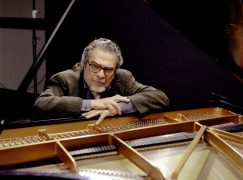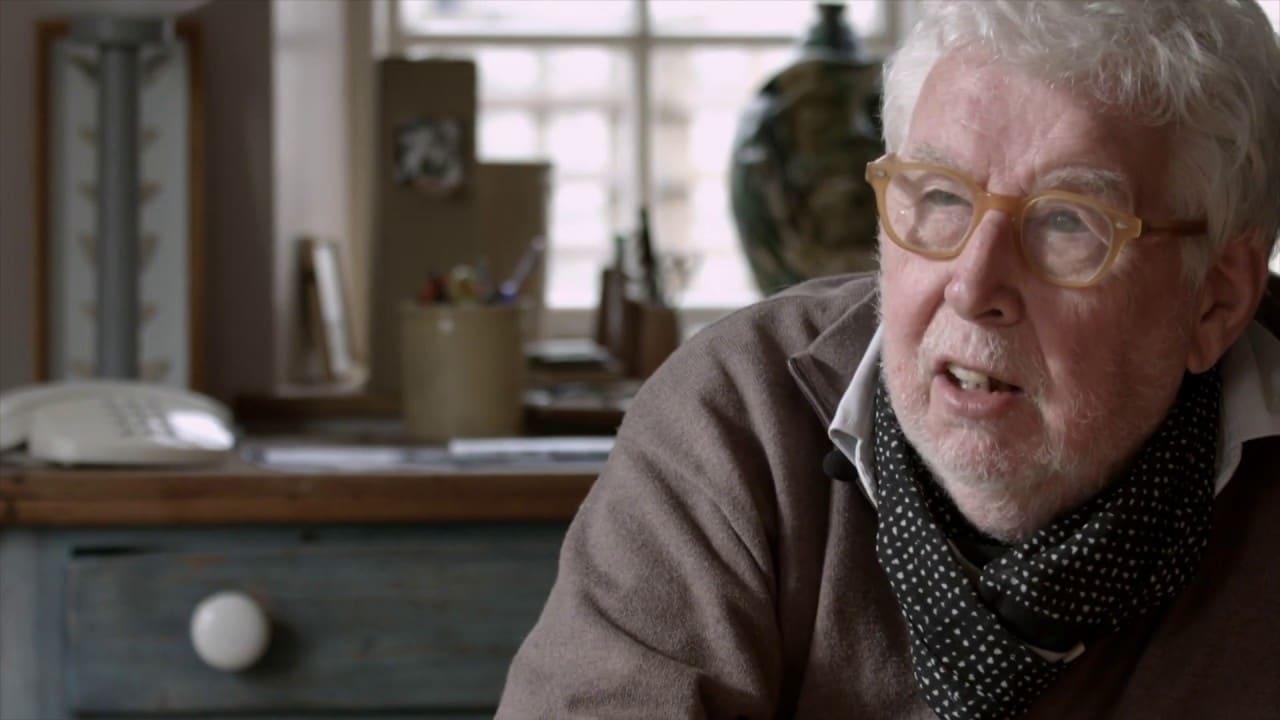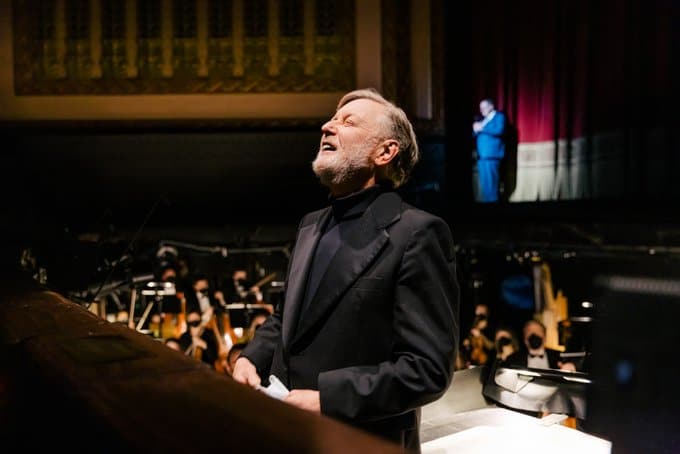You pianist? said Rachmaninov. Bad business….
mainFrom Frank Salomon Associates:
When Leon Fleisher was 8 years old, his mother took him to hear Rachmaninoff play a recital at the War Memorial Auditorium in San Francisco. As the concert ended, somehow, Mrs. Fleisher had spirited her little boy from the second balcony to the wings of the hall to meet the maestro.
Rachmaninoff, a tall imposing figure, came off after the last piece, looked down at a speechless Leon and asked, “You pianist?” Leon could only nod his head, to which the great composer and pianist exclaimed, “Bad business, bad business” and strode back on stage to play an encore.
Now, more than 80 years later and having overcome challenges that would have felled most of us, Leon Fleisher is about to celebrate 75 years of making music and his 90th year in 2018-2019. The legendary pianist and conductor, who brings a special musicality and humanity to all he does, will perform at Carnegie Hall; in Philadelphia, Washington, DC, San Francisco; with the Toronto Symphony in Toronto, Ottawa, and Montreal; with the Baltimore Symphony; and at the Gilmore, Ravinia, and Tanglewood Festivals, among others.






What a beautifully-played excerpt…. lovingly understanding the music, combining both serenity and profundity without any unnecessary ‘expressive’ gestures.
To only call the above clip sublime may be an understatement. Happy birthday to Leon Fleisher.
90 years already! His recording of LvB’s piano ctos with Szell is an undisputed classic. Ever the serious musician who never fell for silly trends and such.
And the two Brahms Ctos with Szell ain’t too bad.
He’s actually still 89; won’t be 90 until July of ’18. But in any event a great artist and teacher, from whom I had the pleasure and honor of learning
(On knees). “Now I lay me down to sleep I pray the Lord my soul to keep. And thank you, God, for Johann Sebastian Bach”.
And it’s 500 years today since Luther nailed his 95 theses to the door of that church in Wittenberg.
….. and unintentionally unleashed a century of war mongering in Europe, culminating in the 30 Years War.
It was a statement of fact about the anniversary of Lutheran Protestantism. Controversy will rage about the effect of that – for good or ill – for another 500 years.
JB Two major errors here. Luther did not bring about the Reformation single handed. There were many others who questioned the church centuries earlier, eg Cathars. Tyndale in England translated the Bible for those who could not read latin. The reform was a gradual process in England it came about due to Henry VIII’s divorce and an Act of Parliament, the Act of Supremacy in a sense it was like Brexit, except it actually happened!
In Germany, large parts remained Catholic because of the Holy Roman Empire, which Napoleon wisely abolished and no one wanted it back. Those States who went Protestant tended to be more industrious eg Saxony changed because the rulers saw the benefits of getting the Pope off their backs.
The Thirty Years’ War (1618-48) began when Holy Roman Emperor Ferdinand II of Bohemia attempted to curtail the religious activities of his subjects, sparking rebellion among Protestants. The war came to involve the major powers of Europe, with Sweden, France, Spain and Austria all waging campaigns primarily on German soil. Known in part for the atrocities committed by mercenary soldiers, the war ended with a series of treaties that made up the Peace of Westphalia. The fallout reshaped the religious and political map of central Europe, setting the stage for the old centralized Roman Catholic empire to give way to a community of sovereign states. In a sense it was the Thirty Year’s Ware which led to nationalism rather than the Reformation.
“….. And thank you, God, for Johann Sebastian Bach”. Nobody would ever have said that, not even in jest, during his lifetime.
Well, now they say it and mean it.
I know I’m OLD, but that’s ridiculous!:-)
What a wonderful performance! I am looking forward to Maestro Fleisher’s Carnegie Hall concert
Lovely teacher, lovely man, lovely musician. May he live another 89 years.
Indeed! He was chef of an orchestra where I played while in grad school, and I learned so much from him in that context that has stuck with me over the intervening decades.
Haha, nice to see that Rach kept true to his character.
He was enormously privileged and yet seemed miserable, every letter he wrote was full of complaints about having to play the piano or feeling ill or not getting enough praise or not making enough money. This from one of the most respected (and well paid) pianist/composer of the 20th century.
“This from one of the most respected (and well paid) pianist/composer of the 20th century.
And he would have been even better paid if he had been able to collect royalties from his first three piano concertos which have been in the public domain practically ever since they were first published, as well as just about everything else that he wrote from that period. Imperial Russia was not a signer of the copyright conventions of the time, so his early works suffered the same fate as those by Stravinsky.
BTW, Rachmaninoff didn’t really want to pursue a career as a pianist, but did it out of economic necessity since he was not able to support himself and his family from composing after emigrating to the USA. At the age of 45, he had to build up a repertoire of recital programs practically from scratch.
And although I believe he was offered the position of music director of a major orchestra on more than one occasion, he probably thought it would tie him down too much.
Pretty sure he could have raised the ticket prices and only done 15 concerts a year and lived well off that, focusing on composing and family. Instead he lived in an extravagant way with servants, cars, boats, villas etc., and complained about how much he had to work to keep it up. So, no sympathy from me.
Have to agree with you on one point:
As a pianist myself, knowing about how “easy” it is nowadays to make a living from playing concerts, I also have little sympathy for someone who decides to embark on a career as a concert pianist for reasons of “economic necessity.” 😉
But, after all, we are talking about Rachmaninoff, and the business was a lot different in those days. Judging from his family history, as related in Robert Walker’s excellent biography of Rachmaninoff, frugality was somewhat in short supply amongst the values he received from his father.
A very one-sided viewpoint you have there. Rachmaninoff, famously shy and uncommunicative in public, made several cryptic remarks to different people, probably to deflect unwanted attention away from his person. I’d be surprose if you’d read many of his letters; among friends and family he was warm and very generous, for instance bailing out Medtner, (in ultra discreet fashiion so nobody knew), with hundredss of dollars after an impresario ran off with all his US tour money. He sent thousandss equally to the Soviet war effort, for Russians, overcoming his disgust for the regime which had forced him and family out of their home. Many other generous acts and gestures are recorded by colleagues of all ages.
As for “complaining”….well it’s true it wasn’t his first choice to be a touring pianist, and had to work very hard to build up an acceptable performing repertoire on arrival in the US as an exile. He escaped with family thru dangerous waters with nothing and received no income from his compositions, till then all published in Russia. Agents obloge him to play “safe” programmes when he wanted to be more adventurous. But “complaining” is too facile; he treated his notorious lack of confidence with ironic humor, maybe you haven’t read enough. In any case a “serious” composer with a popular hit might have to get used to sniping jealousy from all sides. These days, with most of his oeuvre performed and understood even more and more by most “serious” musicians, (how surprose he’d be!), i’d have thunk the sniping would have run its course.